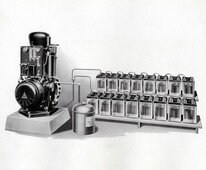I love my 24V system too…chose it for several reasons… wouldn’t change a thing except I’m adding more panels now ..all else does will do everything I planned to do… wire costs are not important as I oversize everything anyway.I love my 24V system. Wouldn't change a thing.
If youre not using LFP batteries it gets expensive to go 48V.
Everyone likes their steak cooked “their” way. There is rarely one size fits all in life ….…
J.



